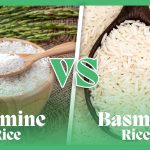We take a taste-bud-pleasing trip through the alluring pairing of bagels and cream cheese, a carb-loving match that instantly elevates brunches, late-night desires, and morning routines alike. Imagine the beauty of bagels and the creamy partner that enhances every mouthful as a symphony of crunchy edges, chewy centres, and a delicious schmear of velvety smoothness.
Beyond the mouthwatering secrets is a plea to recognize the health aspects of this culinary romance in addition to the pleasures. Let’s take a balanced approach and recognize the significance of nutrition while we relish the delicious nibbles and filling spreads, taking time to appreciate each moment with awareness. Our love affair with these wonderful treats will be as nutritious as it is tasty thanks to this voyage into bagel brilliance, a guilty pleasure handled perfectly!

What is a bagel?
Bagels are spherical, doughy treats that are available in a wide variety of flavours, each with a distinctive twist to accommodate different palates.

Types of bagels and their nutritional profiles:
Being aware of the wide variety of bagel varieties enables us to customize our breakfast selections to meet our dietary requirements and taste preferences, making for a satisfying and balanced start to the day. Now let’s examine the numerous varieties of bagels and their nutritional profile.
Plain Bagels:
Traditionally preferred by purists, plain bagels offer a basic base for a variety of spreads and toppings. Plain bagels are usually lower in fat and sugar, plain bagels are a diverse basis that have a modest calorie count, making them a good choice for anyone watching their intake of nutrients.

Whole Wheat Bagels:
An excellent substitute that is higher in fibre and has a nutty taste, these bagels highlight the benefits of whole grains. Whole wheat bagels include more fibre due to the whole grains they contain, which helps with digestion and gives you a longer-lasting energy boost.

Everything Bagels:
These bagels are a flavour explosion with a variety of spices and seeds, including sesame, poppy, onion, garlic, and more, making every mouthful a gourmet journey. Everything bagels are a more nutrient-dense choice as it is produced by the diversity of seeds and spices, which also provide beneficial fats, minerals, and antioxidants to the dish while enhancing flavour.

Cinnamon Raisin Bagels:
Packed full of flavour and just the right amount of sweetness, these bagels are a great option for anybody with a sweet craving. They are also laced with cinnamon. The raisins give a natural sweetness and a healthy amount of vitamins and minerals, and the addition of cinnamon may have anti-inflammatory effects.

Sesame Seed Bagels:
These bagels have a wonderful crunch and a hint of earthiness thanks to a liberal sprinkle of roasted sesame seeds. The nutritional profile of these bagels is enhanced by the inclusion of sesame seeds, which provide a source of protein, minerals, and healthy fats.

Blueberry Bagels:
Packed full of luscious blueberries, each mouthful of these bagels delivers a delicious, fruity explosion. Blueberry bagels are packed with vitamins and phytochemicals that promote general health, these bagels are sweetened with antioxidant-rich blueberries.

Asiago Cheese Bagels:
A savoury treat, these bagels have a substantial amount of Asiago cheese on top, giving the beginning of your day a savoury, sharp bite. These bagels provide a tasty treat and a source of calcium and protein, but they are higher in calories and saturated fats because of the cheese topping.

Nutritional composition of bagel:
Calories:
Depending on their size and composition, bagels can have a very different number of calories. Around 250–300 calories are included in a conventional plain bagel, however, bigger or specialized bagels may have much higher calorie counts.
Carbohydrates:
Carbs make up the majority of bagels’ composition, which gives our bodies a significant source of energy. A plain bagel is a high-carb meal choice since it typically has between 50 and 60 grams of carbs per serving.
Protein:
Bagels also provide a reasonable amount of protein i.e. roughly 8 to 10 grams per serving, which helps with satiety and muscle regeneration.
Fats:
Bagels have a low-fat content; a normal serving is 1-3 grams, however, this might vary according to the toppings and ingredients.
Fibre:
Whole grain and speciality bagels could have a higher fibre content than standard bagels manufactured with refined flour. For instance, a serving of whole wheat bagels might contain about 4-6 grams of fibre.
| Nutrient | Amount per serving of plain bagel |
| Calories | 250-300 kcal |
| Carbohydrates | 50-60 g |
| Protein | 8-10 g |
| Fat | 1-3 g |
| Fibre | 1-2 g (varies by type) |
| Calcium | 20-30 mg |
| Iron | 1-2 mg |
| Magnesium | 10-15 mg |
| Phosphorus | 40-60 mg |
| Potassium | 50-70 mg |
| Sodium | 300-400 mg |
| Thiamin (B1) | 0.1 mg |
| Riboflavin (B2) | 0.1 mg |
| Niacin (B3) | 2 mg |
| Folate (B9) | 20-30 mcg |
Role of bagel in human nutrition:
Though they’re a tasty and well-liked food item, bagels are usually manufactured using refined wheat flour, which may not have as many health benefits as whole grain alternatives. Still, some of the ingredients in bagels may have significant potential health advantages. Let’s have a look at them!
Sustains energy:
Because they are high in carbohydrates, bagels are an easy and quick way to get energy. Since the body uses carbohydrates as its main fuel, eating the right quantities of them can raise energy levels overall. For even more nutritious advantages, it’s best to go with whole grain or multigrain bagels. (1)
Improves digestive health:
Certain types of bagels do include dietary fibre, even if typical bagels might not have as much fibre as their whole-grain cousins. Because it encourages regular bowel movements and helps avoid constipation, fibre is crucial for the health of the digestive system. Furthermore, dietary fibre may help with weight management by enhancing feelings of fullness. (2)
Boost cellular functioning:
Iron, folate, and B vitamins are among the vital minerals that may be found in bagels. Red blood cell production, energy metabolism, and general cellular function are all greatly impacted by these nutrients. However, depending on the components in the bagel, the precise nutritional value may change.
Muscle repair:
Whole grain or enriched flour bagels might help you consume more protein. Protein is necessary for immunological response, muscle repair, and the synthesis of hormones and enzymes.
Weight management:
Bagels’ protein and carbohydrate content might help you feel fuller for longer. After a meal, feeling content and full may aid in preventing overindulgence and promoting weight control objectives.
Now let’s explore the cream cheese
What is cream cheese?
Cream cheese is a soft cheese with a moderate flavour and a high-fat content. It is produced by fermenting lactic acid with a combination of cream and milk. The end product is a spreadable, creamy cheese with a hint of acidity. Cream cheese is frequently used in both savoury and sweet foods, cheesecakes, condiments for bagels, dips, and other recipes. Because of its neutral taste and creamy texture, it’s a versatile ingredient in culinary endeavours.

Nutritional value of cream cheese:
100 grams of cream cheese portion has around 342 calories in terms of nutritional value, the bulk of which come from fats. About 34 grams of fat altogether, of which 22 grams are saturated fat, make up a sizable amount.
| Nutrient | Amount per 100 grams |
| Calories | 342 kcal |
| Total Fat | 34g |
| Saturated Fat | 22g |
| Trans Fat | 1.3g |
| Cholesterol | 110mg |
| Sodium | 379mg |
| Total Carbohydrates | 2g |
| Dietary Fiber | 0g |
| Sugars | 2g |
| Protein | 6g |
| Vitamin A | 1231 IU |
| Calcium | 83mg |
| Iron | 0.1mg |
Following are some of the commonly used verities of cream cheese:
Regular cream cheese:
Regular cream cheese, the traditional kind, spreads well over bagels or crackers and has a smooth, creamy, and rich texture. Regular cream cheese, which is made from milk and cream combined, has a rich flavour and texture that enhances whatever meal it is added to.
Low-fat cream cheese:
Low-fat cream cheese offers a reduced-fat substitute without compromising too much of the creamy taste for those looking for a lighter choice. Low-fat cream cheese, which is often manufactured using skim milk or part-skim milk, is a popular option for people who are health-conscious since it has a comparable texture to conventional cream cheese but contains fewer calories and fat.
Greek yoghurt-based cream cheese:
Greek yoghurt-based cream cheese is a more recent addition to the cream cheese market. It blends the rich, creamy texture of regular cream cheese with the tart taste of Greek yoghurt. This type adds a distinctive touch to the traditional spread, with a slightly lighter texture and a subtly tart flavour that gives any meal more depth.
Flavoured cream cheese:
Flavoured cream cheeses are available in a variety of mouthwatering flavours to satisfy every palette, from salty to sweet. Flavoured cream cheeses provide countless opportunities for culinary inventiveness, whether they are swirled with fruity jams or honey, imbued in spices and herbs, or combined with smoked salmon. These variations elevate simple foods into amazing culinary experiences by adding a layer of taste to bagels, sandwiches, and dips.
Stimulus on nutrition and taste:
Different types of cream cheese have unique tastes and nutritional characteristics that impact a dish’s overall flavour. While low-fat and Greek yoghurt-based varieties have lighter, more zesty tastes, regular cream cheese has a creamy, decadent flavour. Cream cheeses with flavours enhance the richness and intricacy of both savoury and sweet recipes.
Additionally, the type of cream cheese selected affects the nutritional profile; ordinary cream cheese has more calories and fat, low-fat cream cheese has less fat, and Greek yoghurt-based cream cheese has more protein and probiotics.
Role of bagel with cream cheese in human nutrition:
A bagel with cream cheese may be a filling and healthy meal, providing several benefits for your health that have been shown by research.
Prevent chronic diseases:
Minerals, fibre, and B vitamins are among the vital components found in bagels, especially whole-grain varieties. The combination becomes a nutrient-rich choice for breakfast or snacks when combined with cream cheese, which is high in protein and good fats. According to research published because of their high nutritional content and possible health benefits, whole grains may lower the chance of developing chronic illnesses.(3)
Weight management:
Combining the protein from the cream cheese with the complex carbs in the bagel may improve fullness and help regulate hunger all day. Both overall food pleasure and weight control may benefit from this. Studies indicate that eating meals high in protein and carbs might increase feelings of fullness and reduce total calorie consumption, which may help with weight control. (4)
Sustains overall health:
A balanced combination of macronutrients, such as carbs, proteins, and fats, may be found in bagels with cream cheese. This equilibrium contributes to the body’s ability to produce energy and heal tissue, among other things. A review paper highlights the significance of consuming a balanced diet of macronutrients for general health and well-being. (5)
Improves gut health:
Gut health can be improved by cream cheese, particularly probiotic-enriched types like Greek yoghurt-based cream cheese. Probiotics help maintain a balanced population of good bacteria in the stomach, which improves digestion and may even increase the body’s capacity to absorb nutrients. Publications have demonstrated the possible health advantages of probiotics included in dairy products, such as enhanced immunological response and gut health. (6)
Improves digestive health:
Adding nutrient-dense toppings to a bagel with cream cheese might further boost its health advantages. A meal’s total fibre content is raised in addition to vitamins and minerals when fruits, vegetables, or seeds are included. The research emphasized the many health advantages of dietary fibre, including better digestive health and a lower risk of chronic illnesses. (7)
Healthy fats and proteins:
Cream cheese with bagels provides a well-balanced combination of heart-healthy monounsaturated and polyunsaturated fats as well as saturated fats. Additions such as avocado or smoked salmon to meals can boost their nutritious content lower cholesterol and promote heart health. The protein in cream cheese and other high-protein toppings improves the nutritional value of the meal and is essential for immune system function, satiety, and muscle regeneration. Omega-3 fatty acids, found in salmon, for instance, further support heart health.
Different toppings and mindful choices:
In addition to adding taste and texture, toppings like avocado, smoked salmon, tomato, and spinach also supply important vitamins and minerals. These garnishes promote the integrity of the skin and the health of the immune system, among other physiological processes.
When adding high-calorie toppings, it’s crucial to use moderation since this can result in a conscientious and fulfilling approach to calorie consumption. In addition to improving the taste experience, balancing the flavour profile with toppings promotes a diversified intake of nutrients. All things considered, adding nutrient-dense toppings to bagels can result in a satisfying and balanced lunch.
Maintains the nutritional balance:
Thanks to their complex carbs, bagels offer a rapid and readily digested source of energy. The mix of cream cheese, toppings, and good fats also makes them satiating. This concoction helps suppress appetite in addition to supplying energy. Furthermore, bagels are a good source of micronutrients as they include important vitamins and minerals from cream cheese and toppings that support immune system function, general health, and other physiological functions.
Dietary considerations:
For people who are gluten intolerant or on a gluten-free diet, there are gluten-free bagel substitutes produced from almond or coconut flour. Furthermore, gluten-free cream cheese alternatives guarantee that those with certain dietary requirements can still enjoy a bagel with cream cheese.
We’ve discovered the mysteries of this time-honoured combination in the pleasant tour through the Bagel with Cream Cheese Nutrition Wonderland. Our taste senses and body are in for a treat, from the nutritious ballet of macronutrients and micronutrients to the perfect balance of chewy bagels and silky cream cheese.
Recall that it’s important to make thoughtful decisions that satisfy your nutritional requirements and tastes rather than focusing just on the appetizing bites. So, use the bagel with cream cheese as your canvas for flavorful, well-balanced, and delightful eating encounters, whether you’re enjoying the traditional pair or creating your unique masterpiece!
References:
- https://doi.org/10.1017/S0029665115002104
- https://doi.org/10.1186/s12889-022-13419-y
- https://doi.org/10.1111/gcb.14481.
- https://doi.org/10.3945/ajcn.114.084038
- https://doi.org/10.3945/an.114.006163
- https://doi.org/10.1016/j.copbio.2009.01.002
- https://doi.org/10.1016/j.jand.2015.09.003










I do not even know how I ended up here but I thought this post was great I dont know who you are but definitely youre going to a famous blogger if you arent already Cheers.
Your blog is a treasure trove of wisdom and positivity I appreciate how you always seem to know just what your readers need to hear
I sincerely enjoyed what you’ve accomplished here. The sketch is fashionable, your written content chic, yet you appear to have developed some apprehension regarding what you aim to offer thereafter. Certainly, I shall return more frequently, just as I have been doing almost constantly, should you uphold this upswing.
The breadth of knowledge compiled on this website is astounding. Every article is a well-crafted masterpiece brimming with insights. I’m grateful to have discovered such a rich educational resource. You’ve gained a lifelong fan!
Stumbling upon this website was such a delightful find. The layout is clean and inviting, making it a pleasure to explore the terrific content. I’m incredibly impressed by the level of effort and passion that clearly goes into maintaining such a valuable online space.
This is a really well-written post. Thanks for taking the time to share your thoughts.